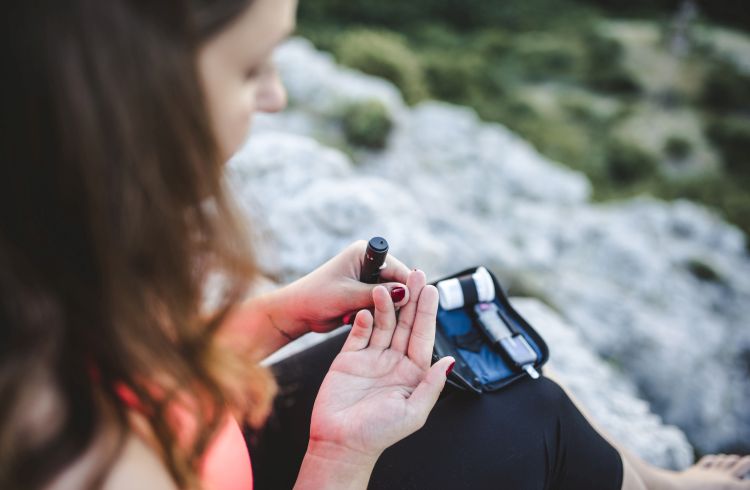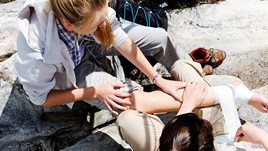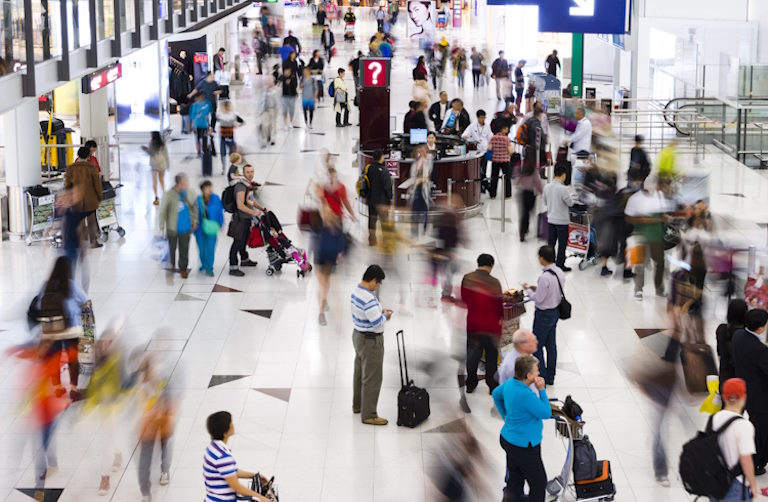Traveling With Prescription Medication: Know Before You Go
Traveling with prescription drugs internationally can be challenging, but doesn’t need to be stressful if you plan ahead. Here's what to know.
 Photo © Getty Images/Azman Jaka
Photo © Getty Images/Azman Jaka
Getting your prescription drugs and medical devices on a plane or cruise ship and through customs requires some research. You need to ensure you’ve checked the legal requirements for your destination country(s) and gotten the necessary paperwork.
IMPORTANT NOTE: If you are planning to take any medication with you while traveling, please contact the relevant country's embassy which can best advise you on whether the medication is considered illegal or not, plus any further information or documents you may need in order to travel with your medications. An online search for embassy/country will give you the contact information you need.
- Pre-travel tips
- Country-specific rules for traveling with medication
- Tips for carrying prescription medication and devices during your trip
- Traveling with pain medication and other controlled drugs
- Buying medication while traveling
Pre-travel tips
Some prescription medicines, which may be legal to use and carry at home, can be illegal in other countries.
Before you travel, ensure you:
- See your doctor or travel clinic to get advice and enough of your medication (and spares of your devices or syringes and the batteries that run them) to see you through the length of your trip. Your itinerary and return ticket should be enough to justify why you’re traveling with the amount of medication you have.
Note: prescriptions are only valid in the country of origin so ensure you’ve filled your prescription/s ahead of traveling. - Ask your doctor to write a letter stating:
- The medication is for your personal use
- What the drug is (generic name)
- What it’s for and the dosage you are taking
- Depending on the destination, you may need it to be translated into the local language (but carry the English version as well)
- Ensure the letter has their name, signature and professional registration details e.g. their medical board number and name.
- If you take any medications with a syringe, make sure this is noted in the letter and again states it is for personal use only.
- Ensure your medications are in their original packaging with prescription labels showing your name, and are within expiry date.
- Learn about the local laws and cultural considerations about your medication or condition.
- Check if your airline or cruise ship has any restrictions on your medical equipment or mobility aids and request any assistance you may need getting on and offboard. Read our article on traveling with a disability for more tips.
- Have an emergency plan (know the local emergency contact numbers) in case anything goes wrong, and consider taking out travel insurance.
Country-specific rules for traveling with medication
Some countries including Singapore, Indonesia, Malaysia, Thailand, Vietnam, China, USA, New Zealand, Fiji, and some countries in Europe have their own restrictions and rules around traveling with medicine. In some cases, there is a limit of 30 days on psychotropic or narcotic drugs, regardless of the length of stay.
India, Japan, Turkey, Pakistan, and United Arab Emirates have particularly strict lists of medications, permits, and registrations.
India and Pakistan
You may take your prescription medications to India and Pakistan with a supporting letter from your doctor (see above). Ensure you only have enough for your stay (maximum of 90 days) and the letter clearly states they are for personal use only.
There are some stricter regulations on narcotics and psychotropic medications. The International Narcotics Control Board provide general information on travelling with narcotics. However, to date, there is no specific country information provided by either the Indian or Pakistani government. It is advisable to contact your local embassy for specific guidance.
Japan
Japan has a very strict drug policy, especially in regards to stimulants. Some cold medications that are common in countries such as the US and Australia are controlled substances in Japan. If you plan to bring in a medication containing codeine or pseudoephedrin, you will need to apply for a special certificate (called a Yunyu Kakunin-sho).
A number of other medications also require advance permission before you can bring them in, and some cannot be brought in even with a prescription.
If your prescription medication is not controlled or prohibited, you are still limited to a 30-day supply.
Turkey
You will be allowed entry with a reasonable amount of prescription medications (depending on length of stay) provided they have documentation from their doctor stating the medications are required during the trip and are for personal use only. Please note that the letter from your doctor needs to be translated into Turkish along with the English version. Some local embassies offer translation services.
Narcotic drugs (such as methodone) or psychotropic substances have their own restrictions.
United Arab Emirates
The United Arab Emirates requires ALL passengers, including those in transit, to register online if they are carrying medications. There is a long list of medications that require registration, and a restriction on the quantity you can carry.
To see a list of medication requiring registration and to register them, go to the Ministry of Health and Prevention's webpage.
Tips for carrying prescription medication and devices during your trip
Always carry your medication, doctor's letter, and other documents in your carry-on luggage in case your checked-in bag goes missing, is delayed or stolen. You may also need to take your medications in-transit, so you'll need them close by.
Declare any syringes you may have with you for medical reasons to customs.
Try to keep your medication cool and dry. If you need to keep things cool, use a thermos or small cooler bag.
Planning an overseas adventure? Find out how travel insurance can cover lost or stolen baggage, medical emergencies, or other mishaps.
Traveling with pain medication and other controlled drugs
Many pain medications, drugs for addiction and supporting mental health are classified as ‘controlled drugs’, meaning there are special rules for producing, distributing, and using them. These include but are not limited to:
- Addiction medication e.g. methadone
- Central nervous system drugs e.g. diazepam, ritalin
- Anticonvulsants e.g. levetiracetam, brivaracetam
- Pain medication e.g. gabapentin, codeine, acetaminophen
- Decongestants e.g. pseudoephedrine
- Sleep medications e.g. temazepam
As mentioned above, please consult the local embassy for your destination to get the best advice and necessary paperwork.
Traveling with vitamins
All vitamins and supplements need to be carried in their original packaging so their contents can be identified. It may also be worth getting them added to your doctor's letter.
Buying medication while traveling
- Prescriptions written by your doctor at home will likely not be valid overseas, so refilling that prescription may not be possible.
- Be careful when buying medications. The medication can be of poor quality, counterfeit or expired.
- It's also important to check the dosage of the medication before taking it as it may be more or less than your usual supply. You could risk overdosing or not getting relief from the condition you have.
- Check the packaging of the medication – is it sealed and intact? Does the package printing and imagery look dodgy?
- The medication you normally take may be known by another name in a different country. If in doubt, ask the pharmacist.
- If you have an allergic reaction to the medication, cease taking it and seek immediate medical assistance.


No Comments